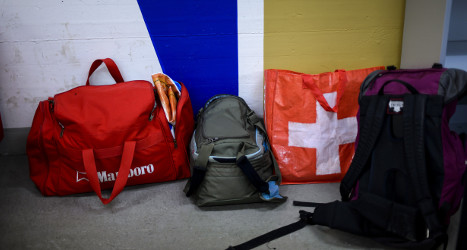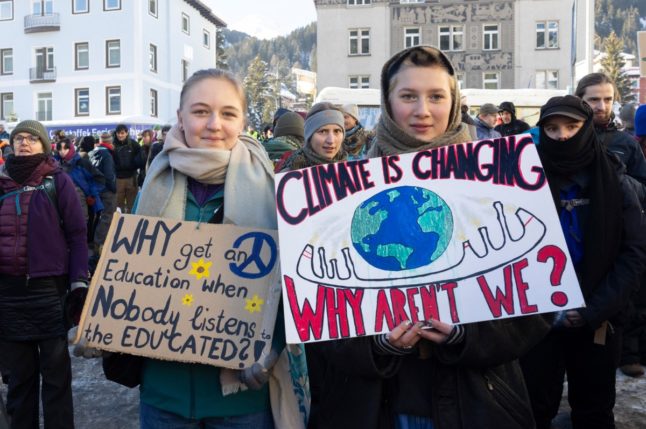The comprehensive report criticized Switzerland on a number of issues, one being the “excessive use of force by police, including during deportations”.
Detention was used excessively in the case of irregular migrants, “particularly in relation to the return of asylum-seekers to EU countries under the Dublin regulation,” it said.
Switzerland also allows young asylum seekers aged 15 to 18 to be detained for up to a year, noted Amnesty.
“Victims of trafficking in human beings and foreign nationals who were victims of domestic violence faced obstacles to accessing protection,” it added.
Amnesty criticized the country for maintaining a ‘severity threshold’ to assess domestic violence suffered by foreign nationals.
“Under the Foreigners Law violence must meet a certain threshold in order for survivors to be able to separate from their violent partner without fear of losing their residence permits,” it said.
Amnesty also expressed concern over two initiatives launched by the right-wing Swiss People’s Party (SVP), Switzerland’s largest political party.
The first is its proposal to expel foreigners who have committed crimes from Switzerland, which will be voted on by the people on February 28th.
The second is its “self-determination” campaign launched last year, which pushes for Swiss law to have higher status than international law.
Though neither initiative is yet approved, the campaigns “contributed to a climate of hostility towards international human rights treaties including the European Convention on Human Rights,” said Amnesty’s report.
In an interview with newspaper Le Tribune de Genève, Manon Schick, the director of the Swiss branch of Amnesty International, said that these proposals, if accepted, would “put in danger state law in Switzerland because they conflict with the European Convention on Human Rights.
“As a result Switzerland will year after year be condemned by the European Court in Strasbourg and will therefore be obliged to renounce the convention.
“Switzerland will then find itself with Belarus in being the only countries not signed up to a decisive convention aiming to protect the rights of European citizens.”
Commenting on the fact that neither initiative has yet been accepted by the Swiss people, Schick said: “It’s our role to highlight bad things as a preventative measure.”
“Our aim is not to paint a black picture but to warn Switzerland so it can think of a solution.”
The Amnesty report also expressed concern over new surveillance laws in Switzerland “which granted sweeping powers to the Federal Intelligence Service including the interception of data on internet cables entering or leaving Switzerland, to access metadata, internet histories and content of emails, and to use government spyware (Trojans).”
Introducing the report as a whole, Amnesty said 2015 was a year which saw “a global assault on people’s basic freedoms, with many governments brazenly breaking international law and deliberately undermining institutions meant to protect people’s human rights.”



 Please whitelist us to continue reading.
Please whitelist us to continue reading.
Member comments